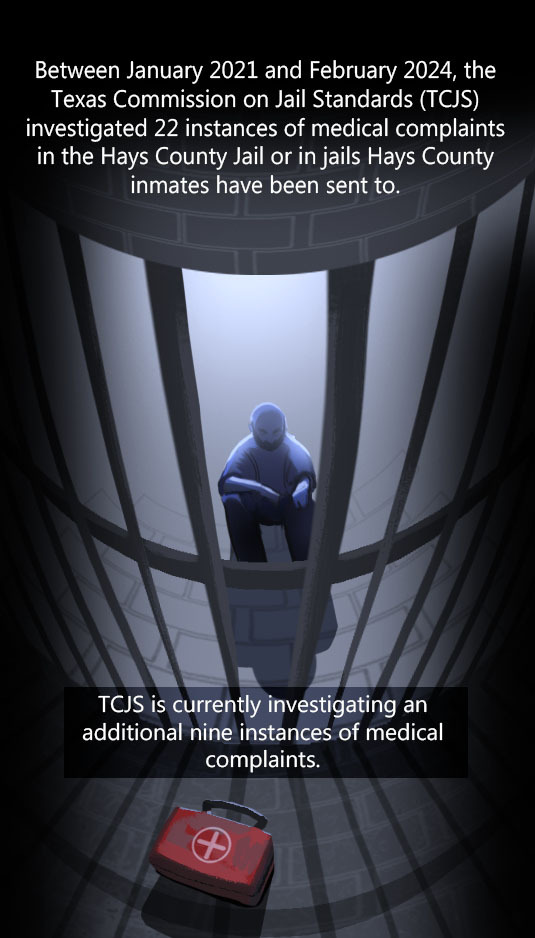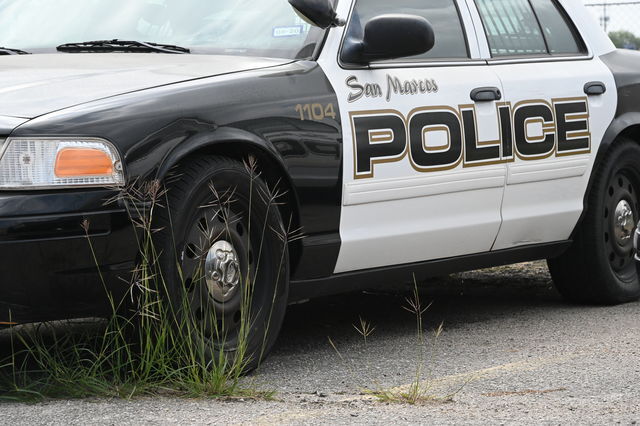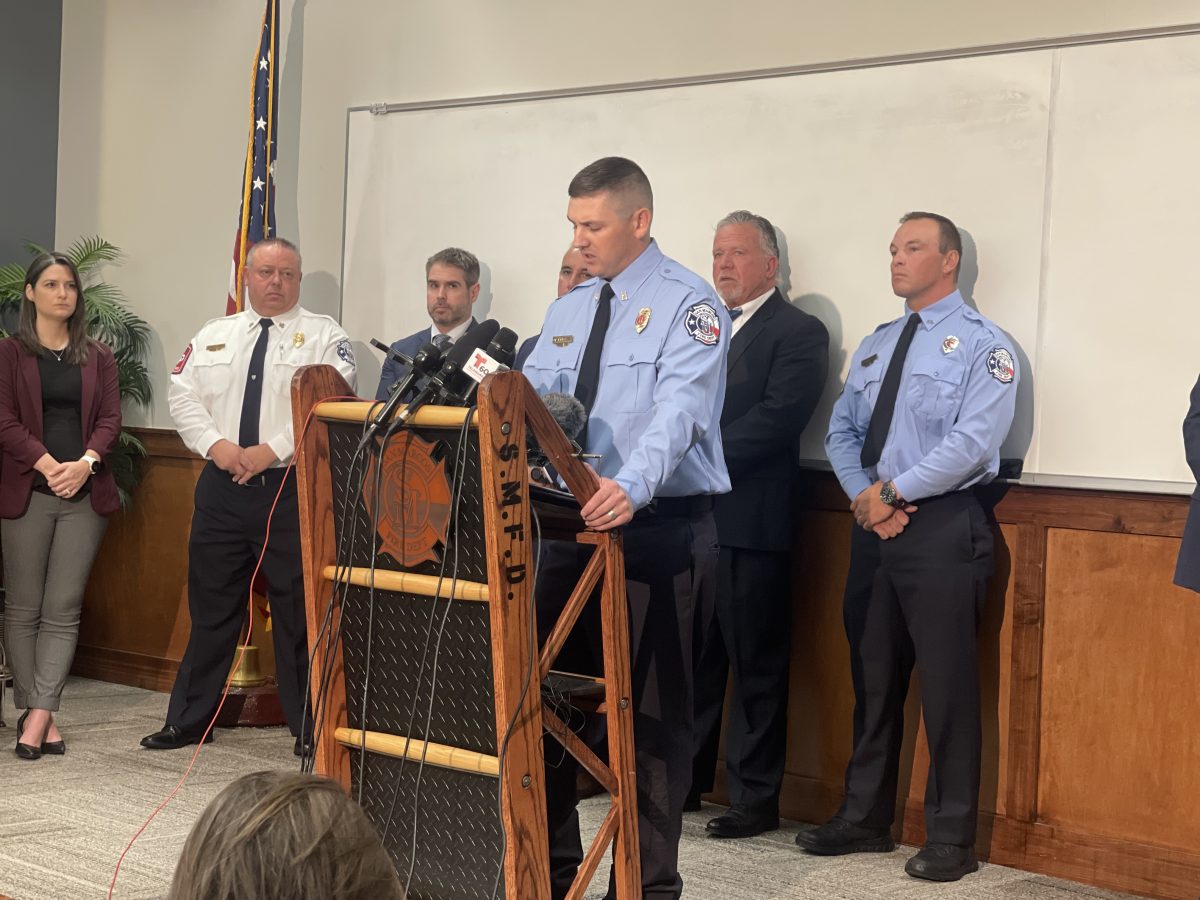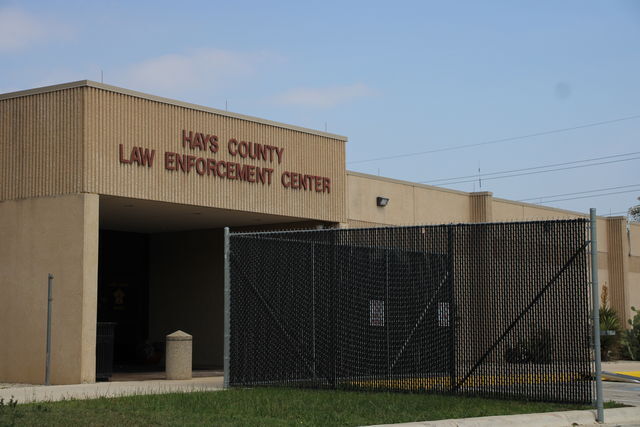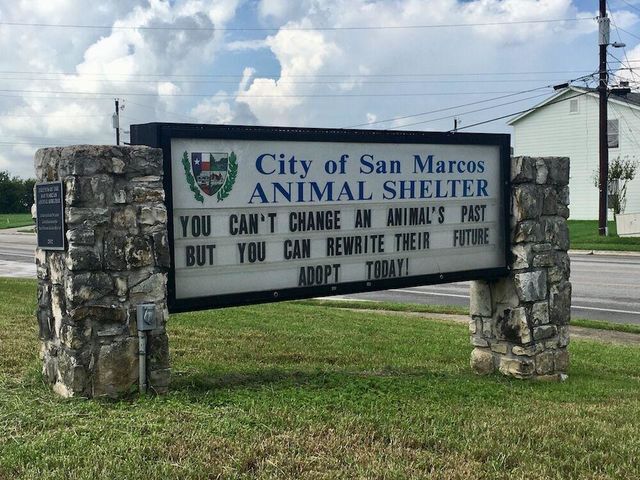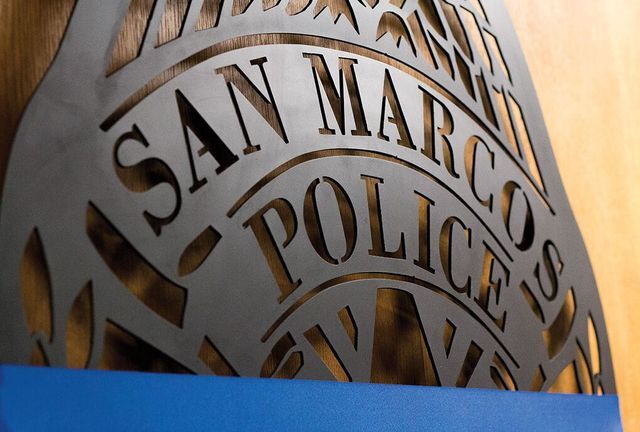Editor’s note: The University Star contacted the San Marcos Police Department for comment but did not receive a response before publication.
A relatively new crime that is soaring in popularity is the theft of catalytic converters, a mechanical piece underneath a car that works to filter toxic air pollutants so they are less harmful when they exit the exhaust.
The mysterious black market for catalytic converters has little to do with the converter itself but the precious metals that lie within. Rhodium, platinum and palladium are rare metals and when extracted from the converter can be worth upward of $800.
The thief that steals the catalytic converters likely doesn’t have the knowledge or the skill set to remove the precious metals from the converter, so they are usually sold and taken apart at a different time. When a converter is stolen the car is often lifted with a jack and sawed-off by someone who crawls underneath; the entire process is done in minutes.
If a catalytic converter is stolen it can cost anywhere from $300-2,000 for a replacement depending on the vehicle. Additionally, Auto Zone, a retailer of aftermarket automotive parts, claims installation fees can be an additional $70-130.
According to the National Insurance Crime Bureau, the theft of catalytic converters has increased by 325% since 2019. Local vehicle maintenance shops have witnessed a growing number of people coming to them and reporting a stolen catalytic converter. Colten Perez, a mechanic at Franks Automotive Inc. in San Marcos, has seen the effects of this theft and wants to see more legal action to prevent the crime.
“It’s happening a lot around the university. I think in the last three months I’ve heard about it probably 14 times,” Perez said. “The state needs to pass some kind of legislate where, unless you have a license from an automotive repair facility or dealer, nobody should be able to take [catalytic converters] and sell them. Until they do that people are going to keep stealing.”
In September 2021, the state of Texas issued a law that prevents recycling entities from purchasing a catalytic converter unless the seller provides the make, model and vehicle identification number (VIN). Additionally, the seller must provide documentation that indicates ownership interest of the vehicle.
Recycling entities must also maintain a written record of all catalytic converter purchases for two years.
According to Perez, the people typically looking to steal converters often work in pairs where one person keeps watch for witnesses while the other person cuts the converter. Perez said he is concerned witnesses are not reporting the theft to the police due to not wanting to get involved.
“If you see someone in a parking lot just kind of walking around and you see somebody else in the distance not too far away, the person that’s not too far away is the spotter looking to make sure that nobody’s coming. That’s when people should pick up the phone [call 911] and say hey, you know, something’s weird here,” Perez said.
Since January 2019, 301 catalytic converters have been stolen in San Marcos, according to the San Marcos Police Department. Due to the number of catalytic converter thefts in the city, the police department issued a Facebook statement recommending residents to be mindful on where they park their cars.
San Marcos resident Karma Mitchell has had her catalytic converter stolen from her car twice, first in November, 2021 when it was parked outside of her apartment and then when it was parked in front of a hotel in the city at the end of January of this year.
Mitchell is concerned the police department is not handling the thefts of catalytic converter seriously enough as each time her convertor was stolen there was never a full investigation conducted. Instead, SMPD sent Mitchell an online link to file her own police report.
“When the first one was stolen, instead of sending somebody to take a report, they texted me a link for me to go online and file my own report and they never assigned an investigator to the case,” Mitchell said. “[SMPD] told me, ‘because you did not witness it happen and do not know who did it, there is nothing for us to investigate.'”
When she spoke to SMPD, Mitchell requested for officers to patrol the area of her apartment complex more often. According to Mitchell, she is not the only person she knows who has had their converter stolen and asked for more patrolling. Despite her requests for additional patrolling, she said she has yet to see it.
“I’m extremely frustrated because nobody stepped up patrolling in spite of the fact that many people requested it. There was no additional presence in the neighborhood,” Mitchell said. “It’s 100% going to happen a third time. It’s going to happen a third time and a fourth time and a fifth time. It’s not going to stop until city PD shows that they can, you know, catch and charge the people [responsible].”
During the week of Feb. 4, Chief of Police Stan Standridge issued an administrative directive to the department to update its response to catalytic converter thefts. Officers are now required to take a report in the field and canvass the area for video sources. Additionally, to ensure an officer is dispatched, the department has suspended online reporting of catalytic converter thefts.
The administrative directive also claims police officers will begin regular patrolling of parking lots, apartment complexes and other locations where thefts have historically occurred. If a catalytic convertor is reported stollen, police will also share suspect information and tips to prevent offenses with the public.
A challenge for San Marcos Police Department and other police forces nationwide is finding the buyers of these converters. However, the department’s Criminal Investigations Division plans to contact catalytic converter recyclers and distributors across the city to review their recent sales.
The police department also plans to partner with local businesses to host catalytic converter etching/ID events. At these events, VIN numbers are to be etched into converters so if they are ever stollen they can be returned to the owner. The first event is scheduled for March 5. The police department states it will release event details soon.
National rise of catalytic converter theft reaches San Marcos
February 16, 2022
Donate to The University Star
Your donation will support the student journalists of Texas State University. Your contribution will allow us to purchase equipment and cover our annual website hosting costs.











